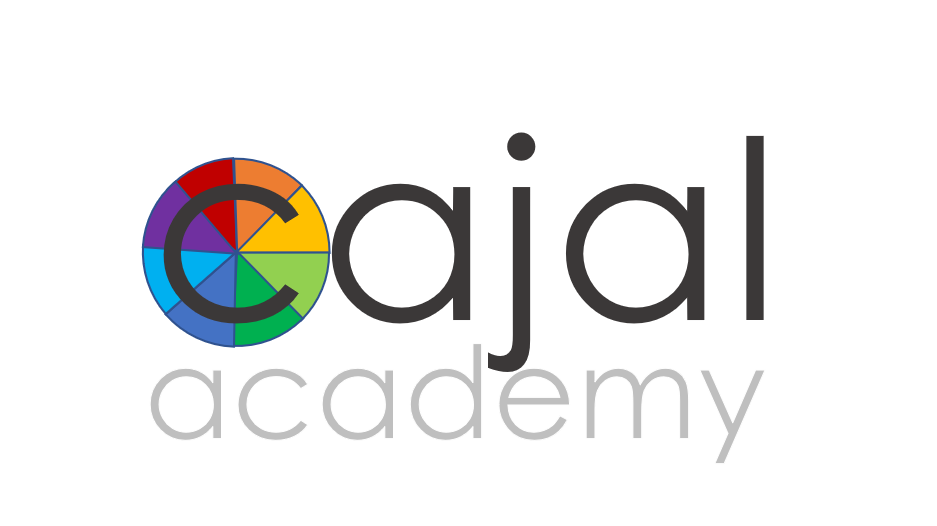Frequently Asked Questions
At Cajal Academy, our program is very much different by design—so we can appreciate that you might have some questions! Here are answers to some of the ones we frequently hear from other families; please feel free to contact us if you have more of your own!
What is your adult to child ratio?
Our adult to child ratio will shift throughout the day from 1:1 to no more than 1:6. Many class sessions are co-taught by an educator with an occupational or physical therapist, making the ratio of adults even stronger.
If a child comes to Cajal Academy, how will you prepare them to return to a more mainstream environment in the future?
The whole focus of our program is on empowering children to optimize their own learning, social and emotional outcomes, precisely so that they can gain greater independence within a wider range of settings and pursuits. Our program employs neuroscience to address children’s disabilities, not just accommodate them. We do this by building up the neural networks a child needs to perform low-lying skills. By focusing on the skills required to do a particular academic or social task, we reduce the barriers that make mainstream environments challenging for that child.
What makes your program different from FLEX, Fusion and 2e schools in the city?
Twice exceptional children are just as varied as any other student population—so we need to build out multiple models to meet their needs. And nationwide, we need far more schools doing so. Cajal Academy is currently the only school in Connecticut that meets both the academic and therapuetic needs of twice exceptional learners. Like FLEX, Quad Prep and other 2e schools, Cajal Academy’s program is tailored to give runway for high aptitude learners. Like Fusion, we offer highly-individualized programs with 1:1 support where needed—but we integrate these programs through collaborative project-based learning and socially-engaged, small group activities because as parents we know how important social learning is for our kids.
However, Cajal Academy brings a new educational model implementing neuroscientific advances in the classroom. Here are some of the ways that makes our program unique:
Our expert, multi-disciplinary team, led by an internationally-recognized neuropsychologist, uses the data in a child’s neuropsychological and neuropsychological profiles to reach beyond clinical labels like “ADHD” to identify the specific cognitive tasks holding a child back;
We apply the principle of neuroplasticity to build up a child’s neural capacity to perform low-lying skills, through movement, games and other strategies developed in therapeutic settings;
We leverage motor and sensory input as powerful learning modalities, through our unique, “Body-Informed Learning” pedagogy—rather than battling with children to sit still; and
We embed coaching in highly-personalized strategies to help a child self-monitor, self-manage and self-advocate for their learning, social and emotional needs and teach children the science behind their challenges, giving them perspective while laying the groundwork for a growth mindset.
Are you accredited? Will you be?
We have received approval as a Candidate for Accreditation from the New England Association of Schools and Colleges (NEASC) and intend to pursue full accrediation. Connecticut statute does not required accreditation. Our team has a level of expertise that is unavailable in most educational settings, including a neuropsychologist who has been internationally recognized as a leading figure in the development of modern neuropsychology in the United States. Further, our first graduate was successful in securing admissions to the top college in his field with a Cajal Academy high school diploma.
Can school districts contract with Cajal as they do with state-approved schools?
CT state statutes permit school districts to contract with and apply section 10-76g funds to pay for programs that can meet a student’s educational needs at a lower cost than what the district can provide, even where that program is not state-approved.
Where other public and private special education programs work to reduce the barriers posed by learning and social-emotional disabilities, our ground-breaking approach reduces or even removes the disabilities themselves.
As this occurs, we reduce the student’s tuition, often by as much as $30,000 year on year as they shift into the next neurodevelopmental “Catalyst Stage.” Thus, while a student’s tuition may match those of our peer institutions in year 1, by the end of 2-3 years in our program some students (including ones who start Cajal with significant behavioral needs and multiple overlapping learning disabilities) will be ready to return to a general education population, dramatically reducing the costs of serving the child over the remainder of their K-12 lifetime. This brings our program within the statutory provision permitting contracting and cost reimbursement for schools that are either (a) state approved or (b) reduce costs relative to the public arrangement, while providing an appropriate and efficacious program.
We continue to evaluate whether these significant advances can be implemented under the regulations governing state-approved schools, as those regulations continue to shift in response to recent legislative activity. In the meantime, Cajal has not sought state approval at this time, in order to ensure that we can continue to provide this uniquely powerful service to families and school districts.
Is Cajal Academy eligible for tuition reimbursement from my school district?
Reimbursement for tuition to attend a special education school is always highly fact-specific and will depend on the needs of your child and the posture of your case. We strongly urge you to speak with an attorney about whether this might be a possibility for your child. However, Cajal Academy is a special education school offering individualized programs and expert OT, PT and psychological therapies. As such, we are the type of school for which tuition reimbursement may be available for eligible students. Depending on your district, more procedural mechanisms may be available to you for schools that are on the state “approved” list of special education schools, however many parents are successful getting reimbursement for their child to attend schools like Cajal Academy that are not on this list. You can read more about this in our interview with leading special education attorney Andrew Feinstein, “Insider Tips for Protecting Your Child’s Educational Rights.”
My child’s medical profile prevents him from completing homework and/or attending for a full day. Can you accommodate kids like him?
Our co-founder’s own children have complex medical profiles, so creating a home for this children is a specific passion of ours. We don’t believe children should be socially or educationally exhiled for medical profiles they did not choose. Rather, we believe they should receive coaching in how to monitor, manage and advocate for those needs, and the flexible schedule required to move forward at the pace their bodies will permit. That said, there will be some medical conditions that require care beyond what we have the setting or expertise to provide, so each situation will be evaluated on a case by case basis. Find out more about our Zebras Program: a school within a school for children with connective tissue disorders, POTS, dysautonomia, sensory processing disorder, joint pain, immunological dysregulation, hypermobility and other complex chronic medical conditions.
What does a typical day look like? How long is the school day?
Our school day is 9:00-3:00. Student schedules vary depending on the needs, but all students start the day with a group sensory session reconnecting them with one another while optimizing their readiness to learn. Each student attends ability-based classes for the core academic subjects of reading, writing, math and science. These are inter-laced with breaks in which the kids are engaged in activities related to their neuroplasticity goals, as well as enrichment classes in art and athletics. Services from our licensed therapists are integrated into the school day and the classrooms themselves, through co-taught classes and our exclusive, OT-designed Body-Informed Learning.


